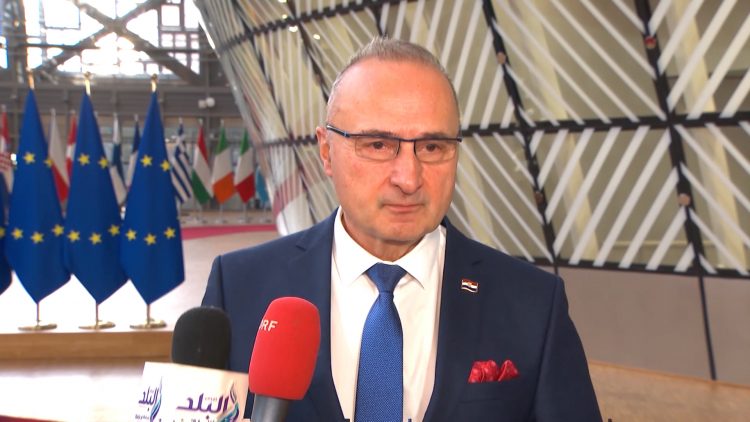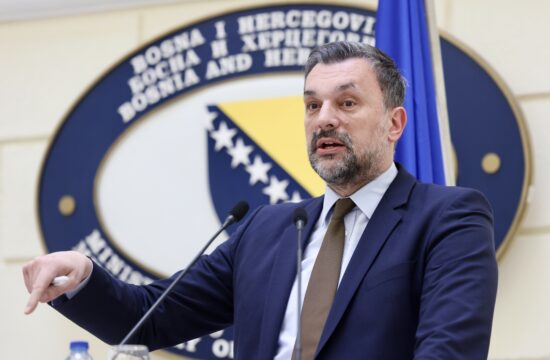
Leaving Bosnia and Herzegovina aside in European integration would discourage pro-European leaders in that country and encourage those from third countries who want BiH to fall under the influence of those who do not have the same agenda as Europe, said Croatian Foreign Minister Gordan Grlic Radman. Pročitaj više
“Pro-European politicians should be encouraged to continue with reforms, and leaving Bosnia and Herzegovina aside would certainly discourage them and encourage those from third countries who believe that BiH should fall under the influence of those who do not have the same agenda as Europe,” Grlic Radman said after a meeting of Eu foreign ministers on Monday.
The EU foreign ministers convened in Brussels on Monday to discuss the Russian aggression against Ukraine, the situation in Israel, the Gaza Strip and the region, and exchanged opinions on the situation in the Sahel and the external dimension of economic security.
Although EU enlargement, which the ministers for European affairs will discuss on Tuesday, was not on the agenda on Monday, Minister Grlic Radman said that when he spoke about aid to Ukraine, he strongly supported Bosnia and Herzegovina.
“In the context of the discussion on Ukraine, when we talked about supporting that country's opening of accession negotiations, I said that Croatia is strongly advocating the start of negotiations with Ukraine, Moldova, but also with Bosnia and Herzegovina, because it should be rewarded for its pro-European politicians,” Grlic Radman said.
He added that the mere opening of accession negotiations with those three countries would not mean that they would become members very quickly, but that they would meet the necessary criteria during the process.
“If they are left out of the accession process, some third countries may perceive this as a weakness of the EU,” says Grlic Radman.
The General Affairs Council, made up of the ministers for European affairs of the member states, will discuss the issue of enlargement on Tuesday. Ukraine and Moldova have the support of most countries, but Hungary opposes the opening of negotiations with Ukraine. As for Bosnia and Herzegovina, it also has the support of some member states, but does not have the consent required for a decision.
It is expected that the Council for General Affairs will “take note” of the recommendations of the European Commission to open accession negotiations with Ukraine and Moldova, while BiH received a conditional recommendation. This “taking note” means that the decision will be left to the leaders of the member states who meet on Thursday and Friday at a summit in Brussels.
The outcome of that summit on the issue of enlargement is extremely uncertain and depends a lot on the position of Hungarian Prime Minister Viktor Orban, who has repeatedly threatened to veto the start of negotiations with Ukraine as well as the package of financial aid to that country.





Kakvo je tvoje mišljenje o ovome?
Budi prvi koji će ostaviti komentar!